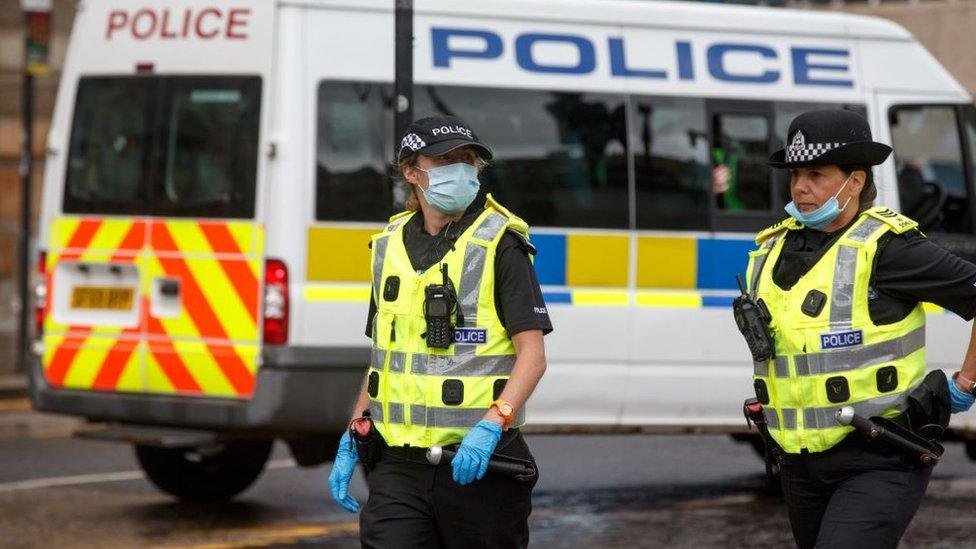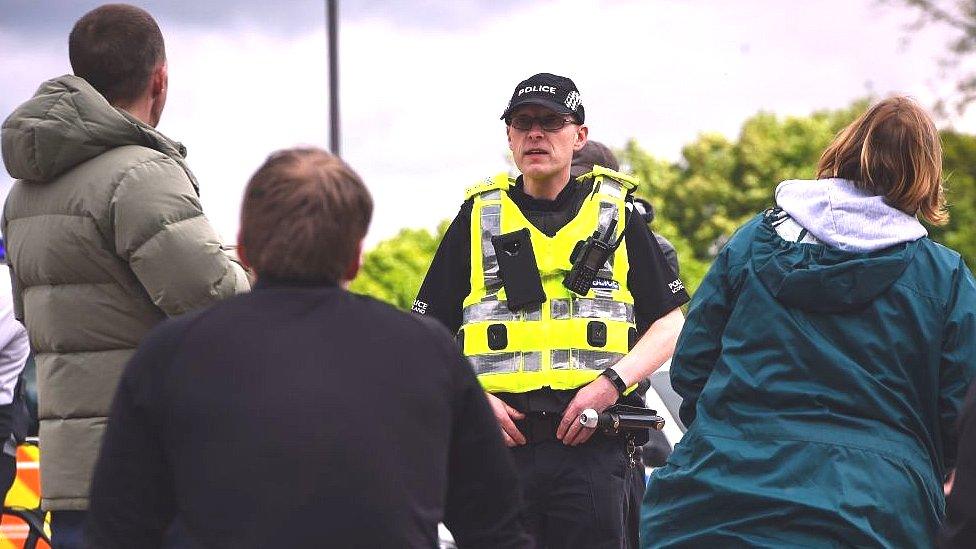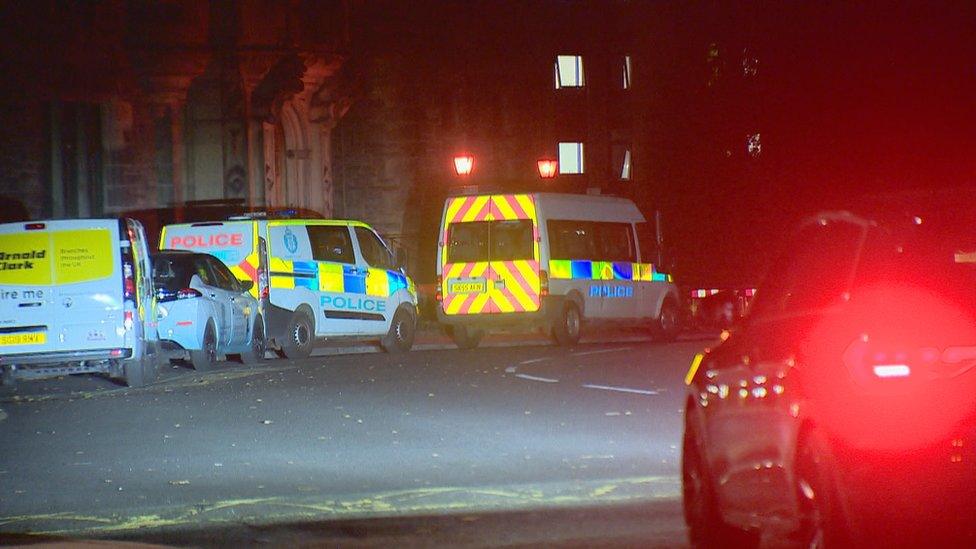Covid in Scotland: Police break up hundreds of parties every week
- Published

Police officers in Scotland are breaking up hundreds of house parties every week despite the ongoing ban on home visits because of Covid-19.
There have been more than 3,000 call-outs since the force was granted new powers in late August, data obtained by the BBC shows.
More than 420 fines have been issued and 83 arrests have been made.
A spike in home gatherings in Tayside and Lanarkshire, where tough rules are being considered, can also be seen.
Police Scotland were granted powers by the government, external on 28 August to break up large house parties that contravened new restrictions on social gatherings.
First Minister Nicola Sturgeon made it clear the move was necessary to ensure socialising continued in a safe and responsible manner.
Coronavirus: Police to have powers to shut down parties
Data, which was obtained by BBC Scotland through a freedom of information request, reveals police officers were called out to 3,052 illegal gatherings between 28 August and 14 October.
A third of these reports occurred after nationwide restrictions were implemented on 23 September.
Two of the largest spikes since these measures took affect have occurred in Dundee and Lanarkshire - areas now being touted for harsher restrictions.

Police Scotland's response to the coronavirus pandemic is known as Operation Talla.
A weekly log is produced as part of that operation. Some of the incidents it highlights include:
Officers from the north east division reported 270 students holding an "ongoing party" in halls of residence
In Motherwell about 20 people were found attending a "religious gathering"
Police attended a student house party in St Andrews where eight students required "reasonable force" to eject them from a property
In Edinburgh officers who attended a "large out of control party and… were met with a hostile crowd, and several were arrested for police assault"
Airbnb properties are being increasingly used as "pop‐up" party venues where there is "a clear level of planning ahead of these efforts to host illegal events"

Deputy Chief Constable Malcolm Graham said: "Despite overwhelming levels of co-operation and support from communities across Scotland, a small minority of people continue to host or participate in house parties and gatherings.
"These are not confined to certain age groups and people should not be in any doubt that house gatherings allow coronavirus to spread.
"Where we encounter wilful, repeated, persistent or flagrant breaches we will, as the public would expect and support, act decisively to enforce the law".
He added that assaults on officers during this challenging time were "disgraceful and will not be tolerated".
The house party data also showed that only 41% of the parties police were called to resulted in fixed penalty notices or arrests.

Paul Waterson, spokesman for the Scottish Licensed Trade Association (STLA), said it would be "unlikely" such leniency would be applied to a pub or restaurant for breaching guidelines.
He added: "People [attending house parties] should feel the full force of the law. If say bars flouted the laws then we'd be shut down."
Mr Waterson believed police officers were using discretion when attending potentially volatile house parties, and only issuing fines or making arrests if absolutely necessary.
The STLA is one of several hospitality industry bodies to have launched a legal challenge against the Scottish government's coronavirus restrictions.
Mr Waterson said the continuing rate of illegal gatherings is "further proof these measures that have targeted our trade haven't worked".
More than 250 call-outs were made by police in the five days following the introduction of the closure of pubs and restaurants in the central belt on 9 October.
Mr Waterson said: "So we've taken people out of a controlled environment.
"[And the data] shows that people will just start to do their own thing."

The Scottish government said it "remains concerned at the prevalence of household gatherings".
A spokesman added: "We know restrictions are tough and we don't want them in place a moment longer than needed, but everyone needs to continue to play their part in curtailing the spread of the virus."
Police documents obtained by BBC Scotland also show concern that the number of parties happening could be far greater than the 3,052 recorded between 28 August and 14 October.
One of the Operation Talla reports said the force's "methodology is designed to quantify the number of times officers have had to enter a private dwelling to investigate suspected breach of legislation or guidance".
The report added: "If officers have not been assigned, or attend several hours later due to other demands and do not enter the premises, but, for example,close the incident concerned with 'house in darkness, no noise', this will not be included as a house party as there is no evidence there has been one."
Similarly while student parties only accounted for 188 (or 6%) of the police call outs, another of the internal police documents indicates the number could be higher.
The report said: "It should be noted that only instances where students are explicitly mentioned in the return or incident are included [in its data]."
But Matt Crilly, NUS Scotland president, said that "the overwhelming majority of students take Covid—19 very seriously", and have made "tremendous sacrifices already" with exams cancelled and their learning disrupted.
- Published26 September 2020
